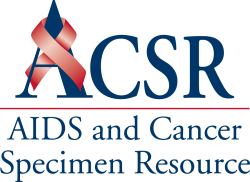ACSR Principal Investigators
MPIs
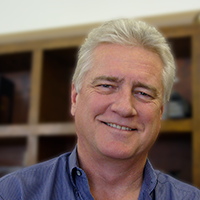 Dr. McGrath is the co-MPI of the ACSR as well as Principal Investigator of the University of California, San Francisco RBR. Since the beginning of the AIDS epidemic, Dr. McGrath has been involved in studying AIDS malignancy pathogenesis and is most interested in the role of HIV infected macrophages in a variety of HIV associated diseases including lymphoma, Kaposi’s sarcoma and AIDS dementia. Over the past several years, he has played a critical role in defining the role of HIV evolution in tissue based sites of HIV persistence.
Dr. McGrath is the co-MPI of the ACSR as well as Principal Investigator of the University of California, San Francisco RBR. Since the beginning of the AIDS epidemic, Dr. McGrath has been involved in studying AIDS malignancy pathogenesis and is most interested in the role of HIV infected macrophages in a variety of HIV associated diseases including lymphoma, Kaposi’s sarcoma and AIDS dementia. Over the past several years, he has played a critical role in defining the role of HIV evolution in tissue based sites of HIV persistence.
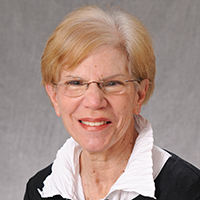 Dr. Sylvia Silver earned her D.A. in 1977 from The Catholic University of America. Directing the operations of biorepositories for over 20 years, Dr. Silver currently serves as one of the MPIs to the AIDS and Cancer Specimen Resource, director of the AIDS Malignancy Clinical Trials Consortium domestic biorepository, and is the GW Cancer Center Biorepository Core Director. Dr. Silver lends her many years of biobanking expertise to other biobanks globally and participates on international advisory committees in need of assistance with biobank development.
Dr. Sylvia Silver earned her D.A. in 1977 from The Catholic University of America. Directing the operations of biorepositories for over 20 years, Dr. Silver currently serves as one of the MPIs to the AIDS and Cancer Specimen Resource, director of the AIDS Malignancy Clinical Trials Consortium domestic biorepository, and is the GW Cancer Center Biorepository Core Director. Dr. Silver lends her many years of biobanking expertise to other biobanks globally and participates on international advisory committees in need of assistance with biobank development.
RBR Site PIs
 Dr. Ittmann holds the William D. Tigertt Chair of Pathology at the Baylor College of Medicine in Houston, Texas. He is a Board certified Anatomic pathologist with 33 years of experience in pathology and is Chief of Pathology and Laboratory Medicine at the Michael E. DeBakey VA Medical Center. He has carried out a funded research program in prostate cancer over the last 23 years resulting in 219 scientific publications. He also directs the Human Tissue and Pathology Core at Baylor College of Medicine. He is currently a member of the Cancer Biomarkers Study Section for the National Cancer Institute.
Dr. Ittmann holds the William D. Tigertt Chair of Pathology at the Baylor College of Medicine in Houston, Texas. He is a Board certified Anatomic pathologist with 33 years of experience in pathology and is Chief of Pathology and Laboratory Medicine at the Michael E. DeBakey VA Medical Center. He has carried out a funded research program in prostate cancer over the last 23 years resulting in 219 scientific publications. He also directs the Human Tissue and Pathology Core at Baylor College of Medicine. He is currently a member of the Cancer Biomarkers Study Section for the National Cancer Institute.
 Dr. Maguire, the site PI of the ACSR Technical Core laboratory located at Mayo Clinic Arizona, joined the ACSR in 2017 under the mentorship of her predecessor, Dr. Lisa Rimsza. She is an Assistant Professor in Cancer Biology at Mayo Clinic School of Medicine and a recipient of an NIH P30 Cancer Center Supplemental Grant award to further her research into the genomic differences between Diffuse Large B-Cell Lymphomas arising in HIV positive patients compared to that which arises in uninfected individuals. Dr. Maguire has worked in translational research for almost 8 years and as such has keen understanding of how precious human tissues for research are. Dr. Maguire oversees the collection, processing and distribution of ACSR materials, and works with eligible investigators to meet their research needs whilst also adhering to the core principles of the ACSR; responsible custodianship and equitable distribution of materials.
Dr. Maguire, the site PI of the ACSR Technical Core laboratory located at Mayo Clinic Arizona, joined the ACSR in 2017 under the mentorship of her predecessor, Dr. Lisa Rimsza. She is an Assistant Professor in Cancer Biology at Mayo Clinic School of Medicine and a recipient of an NIH P30 Cancer Center Supplemental Grant award to further her research into the genomic differences between Diffuse Large B-Cell Lymphomas arising in HIV positive patients compared to that which arises in uninfected individuals. Dr. Maguire has worked in translational research for almost 8 years and as such has keen understanding of how precious human tissues for research are. Dr. Maguire oversees the collection, processing and distribution of ACSR materials, and works with eligible investigators to meet their research needs whilst also adhering to the core principles of the ACSR; responsible custodianship and equitable distribution of materials.
 Dr. Schneider is an anatomical pathologist with an interest in dermatopathology and HIV/AIDS related malignancies. Through his collaboration with the ACSR since 2009 he has gained experience and knowledge regarding the science and the operation of a biobank. Following a successful application in 2013, he became the PI of the NCI-supported Aids Malignancy Consortium (AMC) and ACSR Sub Saharan Africa Regional Biospecimen Repository at Stellenbosch University. His research focuses on priority research areas that are relevant to South Africa and Africa, including cancer with a focus on HIV-related malignancies such as Kaposi’s sarcoma, and cutaneous tuberculosis.
Dr. Schneider is an anatomical pathologist with an interest in dermatopathology and HIV/AIDS related malignancies. Through his collaboration with the ACSR since 2009 he has gained experience and knowledge regarding the science and the operation of a biobank. Following a successful application in 2013, he became the PI of the NCI-supported Aids Malignancy Consortium (AMC) and ACSR Sub Saharan Africa Regional Biospecimen Repository at Stellenbosch University. His research focuses on priority research areas that are relevant to South Africa and Africa, including cancer with a focus on HIV-related malignancies such as Kaposi’s sarcoma, and cutaneous tuberculosis.
ACSR Key Personnel
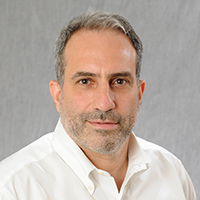 Dr. Bethony is the director of the George Washington University ACSR Biospecimen Repository. Dr. Bethony provides immunological and biorepository support for several ongoing vaccine clinical trials, including Phase 1 first-in-humans studies. He is actively involved in biospecimen science and has conducted several studies on the affect of storage duration and material types on the quality of derivatives from biobanked materials.
Dr. Bethony is the director of the George Washington University ACSR Biospecimen Repository. Dr. Bethony provides immunological and biorepository support for several ongoing vaccine clinical trials, including Phase 1 first-in-humans studies. He is actively involved in biospecimen science and has conducted several studies on the affect of storage duration and material types on the quality of derivatives from biobanked materials.
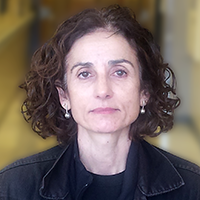 Dr. Bracci is a cancer epidemiologist at UCSF who has been actively involved in the design and conduct of population and clinic-based studies of cancer, particularly lymphoma, pancreatic cancer and glioma, for more than 20 years. She brings to the ACSR an expertise in study design and analysis methodology, and complementary research interests related to immunological factors associated with cancer risk and prognosis as well as the integration of Big Data into biorepositories.
Dr. Bracci is a cancer epidemiologist at UCSF who has been actively involved in the design and conduct of population and clinic-based studies of cancer, particularly lymphoma, pancreatic cancer and glioma, for more than 20 years. She brings to the ACSR an expertise in study design and analysis methodology, and complementary research interests related to immunological factors associated with cancer risk and prognosis as well as the integration of Big Data into biorepositories.
 Dr. Castro earned her PhD in 2001 from the University of Texas-Health Science Center in Houston, TX. Her career has focused on studying the genetics of cancer mutations and biology of leukemia and prostate cancer. Presently, she is the Laboratory Director of the Human Tissue Acquisition and Pathology (HTAP) Core at Baylor College of Medicine. Her role in HTAP is to facilitate the collection, processing and molecular analysis of human tissues as well as to manage services for histology, immunohistochemistry, and imaging of research tissues from mouse or human origin.
Dr. Castro earned her PhD in 2001 from the University of Texas-Health Science Center in Houston, TX. Her career has focused on studying the genetics of cancer mutations and biology of leukemia and prostate cancer. Presently, she is the Laboratory Director of the Human Tissue Acquisition and Pathology (HTAP) Core at Baylor College of Medicine. Her role in HTAP is to facilitate the collection, processing and molecular analysis of human tissues as well as to manage services for histology, immunohistochemistry, and imaging of research tissues from mouse or human origin.
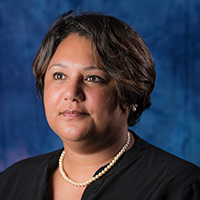 Dr. Sanderson manages the Sub-Saharan African Regional Biospecimen Repository located in the Division of Anatomical Pathology at Stellenbosch University, Tygerberg Hospital, South Africa. She completed her PhD at Stellenbosch University in 2011, followed by a postdoctoral fellowship at the South African Medical Research Council. Here her research focus was the anti-adipogenic and anti-diabetic effects of nutraceuticals including Aspalathus linearis or Rooibos, culminating in several peer-reviewed publications. Her skillset include cell culture, nucleic acid and protein analysis and molecular techniques including biochemical and cell-based assays and qPCR. Her current research interests include biobanking science and technology, HIV-and HPV-related cancers and community engagement.
Dr. Sanderson manages the Sub-Saharan African Regional Biospecimen Repository located in the Division of Anatomical Pathology at Stellenbosch University, Tygerberg Hospital, South Africa. She completed her PhD at Stellenbosch University in 2011, followed by a postdoctoral fellowship at the South African Medical Research Council. Here her research focus was the anti-adipogenic and anti-diabetic effects of nutraceuticals including Aspalathus linearis or Rooibos, culminating in several peer-reviewed publications. Her skillset include cell culture, nucleic acid and protein analysis and molecular techniques including biochemical and cell-based assays and qPCR. Her current research interests include biobanking science and technology, HIV-and HPV-related cancers and community engagement.  Dr. Stoddart is a virologist and Professor of Medicine In Residence at UCSF. She has been the Principal Investigator since 2000 of a consecutively awarded NIH program for HIV therapeutics development in humanized mice. A major goal of this effort is the use of state-of-the art techniques in dual immunochemistry and in situ hybridization to characterize tissue HIV reservoirs in the presence of fully suppressive antiretroviral therapy. Her scientific interests center on interactions between viruses and their hosts, in particular the study of molecular determinants of viral pathogenesis and the role of heat shock protein in HIV persistence.
Dr. Stoddart is a virologist and Professor of Medicine In Residence at UCSF. She has been the Principal Investigator since 2000 of a consecutively awarded NIH program for HIV therapeutics development in humanized mice. A major goal of this effort is the use of state-of-the art techniques in dual immunochemistry and in situ hybridization to characterize tissue HIV reservoirs in the presence of fully suppressive antiretroviral therapy. Her scientific interests center on interactions between viruses and their hosts, in particular the study of molecular determinants of viral pathogenesis and the role of heat shock protein in HIV persistence. 